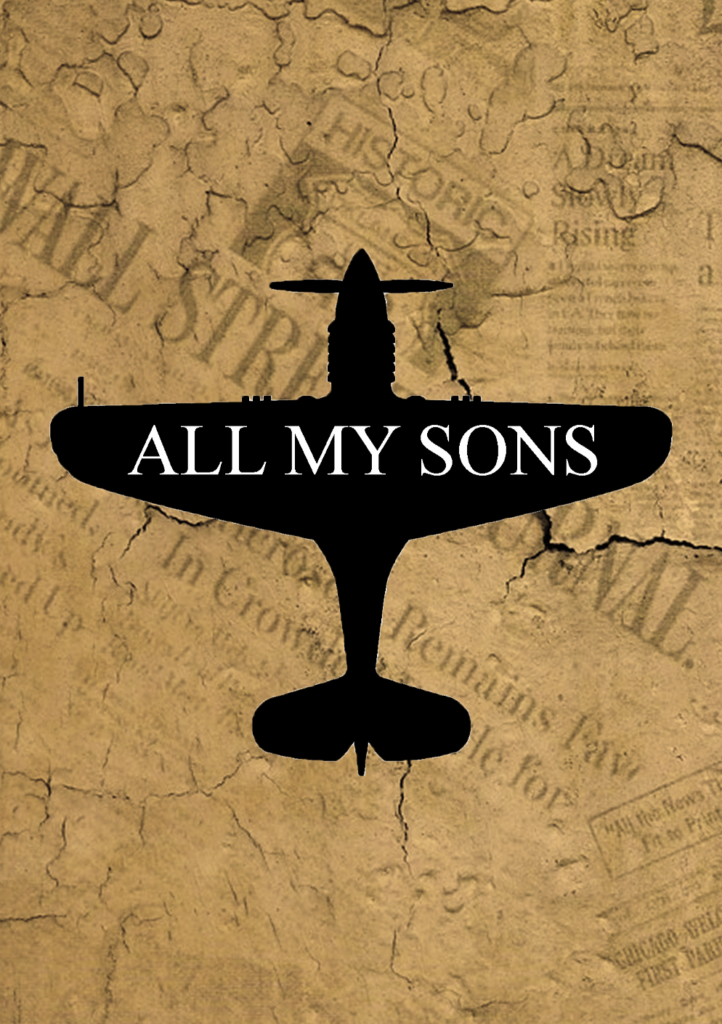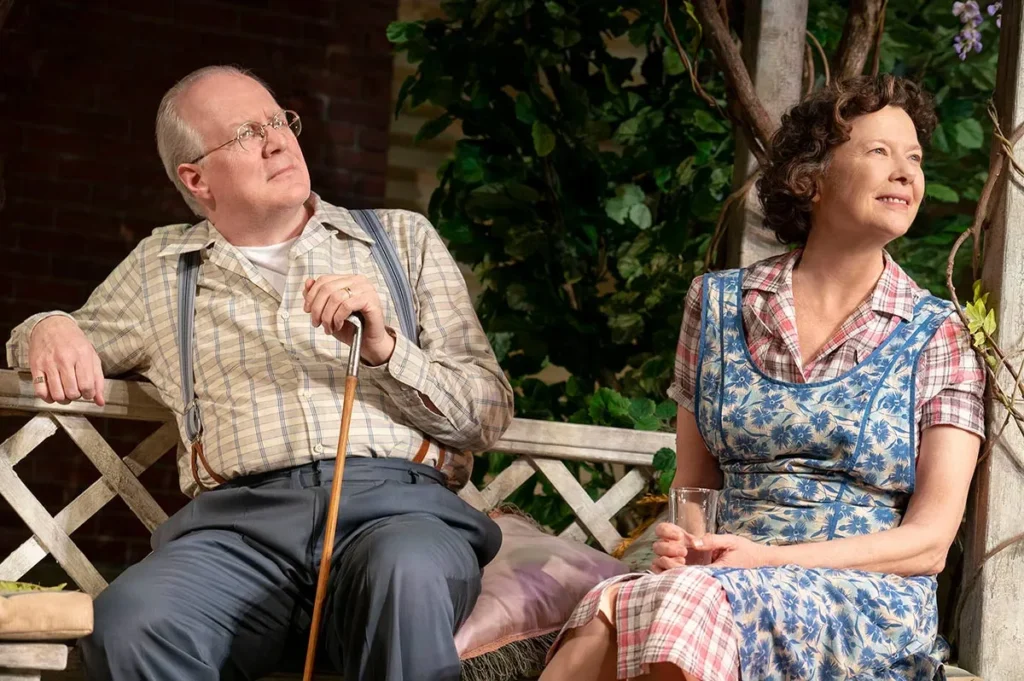Arthur Miller’s play, All My Sons, is an exceptional study of modern tragedy, focusing on the rapidly changing world under the influence of capital. Read its review here.
Arthur Miller’s three-act play All My Sons, written in 1946 and produced for Broadway the following year, is popularly considered to be one of the finest modern tragedies. Based upon a real story that Miller heard from his mother-in-law, it came at a time when he was struggling to find commercial success in the world of theatre and represented something of a ‘make or break’ moment in Miller’s career.
The play was dedicated to the American film and theatre director Elia Kazan, who also co-produced it for stage and features an exploration of guilt, denial and the universal struggle of negotiating between social responsibilities and family interests. All My Sons won the 1947 New York Drama Critics’ Circle Award as well as the 1947 Tony Awards for Best Author and Best Direction of a Play.
Plot Summary of All My Sons

All My Sons is the story of the tragedy that befalls the Keller family, suffering from the consequences of the actions of the patriarch, Joe Keller, who works as a manufacturer of aircraft parts and has two sons, Larry and Chris, who had gone off to serve their country in the war that recently ended. However, while Chris is back home, Larry has been missing for a few years.
While the family has accepted that Larry must be dead, his mother, Kate Keller, refuses to acknowledge the same and lives with the hope that her son will be back someday. Larry was engaged to Ann Deever, the daughter of their previous neighbour, Steve Deever (currently imprisoned). Given Larry’s presumed death, Chris has been hoping to propose marriage to Ann instead. However, Chris and Joe hesitate to share this news with Kate, for it would be similar to openly acknowledging that which Kate has been refusing to accept.
Meanwhile, we learn that Joe Keller, owing to increased pressures on production during the war, once allowed a batch of dysfunctional cylinder heads to be supplied to the Army. Despite knowing that these cylinder heads could seriously endanger the lives of the pilots, Joe still sends them off to avoid losing the contract, which could’ve endangered the future of his business (one that he’d hoped his sons would inherit someday). However, in the ensuing legal case, instead of taking responsibility for his actions, Keller puts the blame on his neighbour Steve, who also worked as his employee.
When Steve is imprisoned, his children Ann and George severed all contact with him, refusing to visit or even write to him in prison. At the start of the play, however, George finally visits his dad in prison, learns the truth of the matter, and returns to confront Joe about it. With the past finally catching up with the Keller family and skeletons tumbling out of the closet, all hell breaks loose in their peaceful household as all the members of the family are forced to deal with old wounds freshly opened again, their love for each other pitted against their greater social duties.
Also Read: A Study of Fragmentation in the Aftermath of World War II in Christian Petzold’s Phoenix (2014)
Themes and Analysis of All My Sons
The primary theme in Miller’s play concerns a world rapidly changing under the influence of capital and the resulting tension between traditional values and the cynicism brought about by the pursuit of money. Ironically, in the play, the son, Chris, is the idealist, championing age-old values of common decency, while his father, Joe, is the more pragmatic one, trying to get his son to appreciate the corrosive effects of capital. Joe Keller is a straightforward, unsophisticated man, willing to go to any lengths for his family. Miller describes him towards the beginning of the play with the following words: “When he reads, when he speaks, when he listens, it is with the terrible concentration of the uneducated man for whom there is still wonder in many commonly known things, a man whose judgments must be dredged out of experience and a peasant-like common sense”.
When confronted with the impossible scenario during the war of choosing between his family’s future and ‘doing the right thing’, Joe unhesitatingly chooses the former, assuming that his family would always stand by him despite his sin, knowing that Joe only acted for their benefit. However, his son Chris is more of an idealist and considers all ill-gotten gains from the war akin to ‘blood money’, refusing to have anything to do with it. Being in the war and seeing his comrades die before his eyes has affected him greatly and made him re-evaluate his priorities regarding life in general. When he discovers his father’s complicity in the crime, his erstwhile ideal image of his parents shatters, and he refuses to take over Joe’s business, much to his father’s dismay. The irony in the situation arises from the fact that Chris’ idealist outlook, wherein he believes in getting past the rat race for money and contributing to society’s greater good, could never have been possible if not for Joe’s pursuit of wealth in the first place.
It’s only with a certain level of financial privilege and educational development that one is sheltered from having to compromise on their morals in pursuit of earning a living, a privilege that Joe himself never had. While he works to save his children from financial precarity, in the process, he ends up doing something for which his son feels no gratitude.
The theme of chasing money vs. doing what’s good for humanity is also mirrored by the side characters in the play, like Doctor Jim Bayliss. Jim dreams of doing research in medical science and helping find cures for deadly diseases but feels suffocated by his private practice amidst the postwar American culture and his own wife’s pressures to earn more money. Alongside, we also see the themes of rationality vs. superstition play out through the characters of Kate and Frank, the latter making a horoscope for Larry Keller to figure out if the day when he went missing was inauspicious for him or not. Kate, meanwhile, strikes the audience as a character so wracked by grief and horror that an irrational belief seems to be all that keeps her from falling apart.
All My Sons acts as a modern tragedy by locating the tragic flaw within Joe Keller. As we know from Aristotle’s theory of tragedy, the tragic flaw affects a reversal of fortunes (peripeteia) for the protagonist, moving from a state of felicity to disaster. In All My Sons, the tragedy manifests through Joe’s perception of a dog-eat-dog world, where craftiness and cunning count for more than honesty and kindness – which, unfortunately, is not a worldview adhered to by his children. Joe Keller perfectly fits Aristotle’s model of the almost-virtuous hero who is led to error despite his best intentions, evoking both pity and fear in the readers; a pity because we recognize that Joe never meant any harm and was only trying to do right by his family and that many of us caught in the same scenario might have been tempted to act similarly, and fear because we also recognize that any of us could someday be confronted with a conundrum similar to Joe’s, which makes his story all the more enduring.
Miller uses the first act of All My Sons to craft an atmosphere of normalcy, setting it “beneath a clear landscape in the broad light of a peaceful day” so as to encourage a greater identification with the characters and their situation before introducing more troubling elements. The second act starts at twilight, the moment when day gives way to night, hinting at the ominous turn the tale is about to take. The final act takes place at two o’clock in the morning, when “the moon is strong and casts its bluish light,” just like the characters whose lives also seem to be suddenly bleached of color and purpose. There is a now blown-down apple tree in the courtyard, which symbolizes Larry to the family members. The mood of the play grows somber as it progresses; more secrets are revealed, and the dialectic between the present and the past reaches the height of contradiction when one of the characters brings out a letter written by Larry – the document serving as the solid ground against which the fantasies of the characters finally crash and burn.
Why You Should Read All My Sons

Arthur Miller’s All My Sons is a classic that endures due to the sheer force of its tragedy and the continued relevance of its themes in today’s world. By evoking pity and fear for Joe Keller, the play aptly generates catharsis in its readers and compels them to adopt Joe’s perspective even as they instinctively reject the same, owing to its moral compromise. It stages the kind of confrontation between past secrets and present revelations that feels at once universal in its scope and yet focused in terms of the specific themes dealt with.
For anyone looking to read a play that will leave them devastated at the end, Arthur Miller’s All My Sons should fit the bill perfectly. Through its almost Ibsen-like realism shining forth through a delicate narrative that threatens to come apart at any moment (yet miraculously doesn’t), Miller’s masterpiece is a lasting testimony to the powers of tragedy to move modern viewers. Above all, All My Sons should force any reader to assess their own lives and the values they hold against the weight of impossible moral dilemmas, keeping in mind the utterly devastating consequences that even the most rational course of action can bring about in such scenarios.

